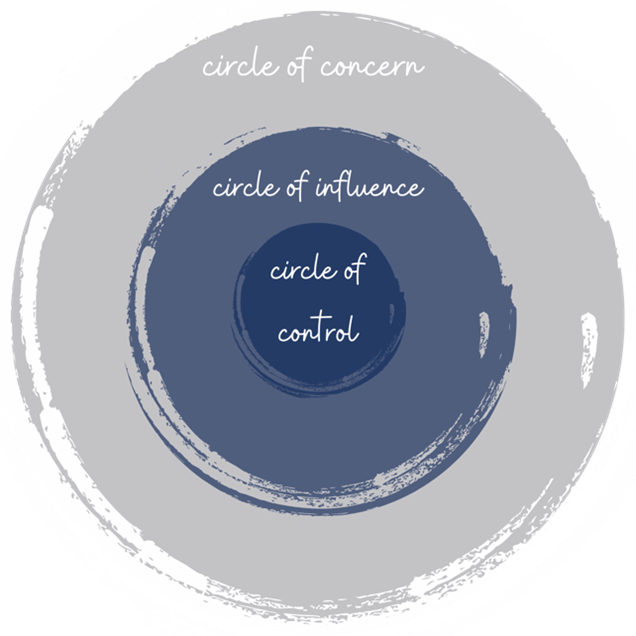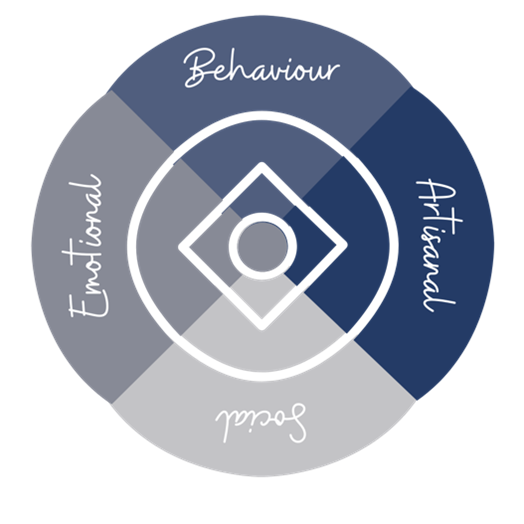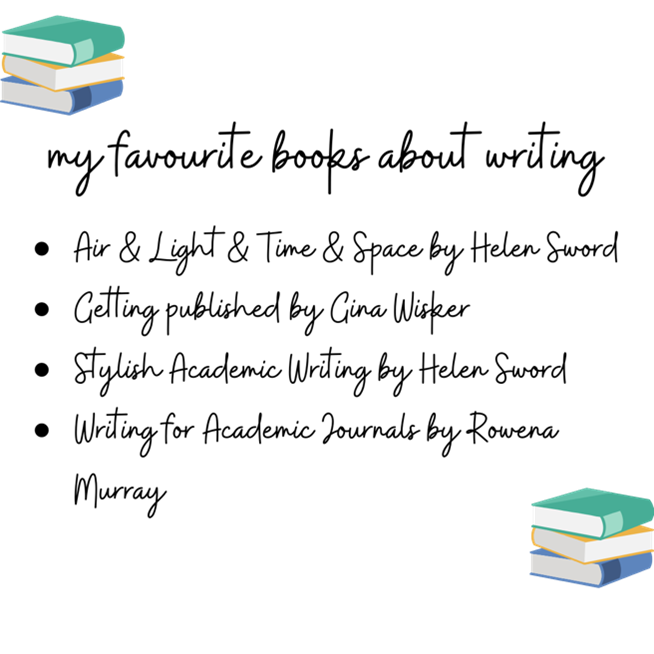
Has anyone ever had a chat with you about your writing? Or their writing for that matter – and I don’t mean about their last publication but their writing process? Writing and in particular academic writing is one of those skills that people assume everyone has and picks up somehow by doing it – without ever really being properly shown how to write. I definitely haven’t been to any writing workshops that guided me along a piece of writing or exposed me to the frustrations of editing your own work. To make a start, lets explore your writing and I will share some tips to get you started. There are some activities in this blog post to help you with your writing. You can use the Explore Your Writing workbook, take notes for yourself as you read, or skip the activities all together.
Before we get started with your BASE (behaviour, artisanal, social and emotional habits) and how to work on it, take some time and think about what or who influences your writing, what is in your control and what is not.
Let’s start with your circle of control. Be honest – what are you really in control of (in regard to your writing)? Maybe it’s things like:
- what you do when you have writing time,
- how much time you can save for writing,
- what you write about
Next, let’s think about your circle of concern – these are all the things out of your control but impact or concern your writing. For example, COVID-19 restrictions, deadlines from your supervisor or manager, review process, competing priorities, university strategy, or teaching allocation.
Lastly your circle of influence. This circle is mostly made up of people, and ideally helpful and supportive people. Who is in your circle of influence and are they helping you with your writing? You can have different circles of influence depending on the task or activity you are thinking about. Who is helping you mitigate the impact of your writing circle of concern and who supports your writing circle of control? Maybe you can also think about who would be good to add to your circle of influence.
Let’s start with your writing BASE – behaviour, artisanal, social and emotional habits related to your writing. This technique was developed by Helen Sword and is the basis for her ‘Air & Light & Time & Space’ book (one of my favourites). If you have five minutes to spare, click here to do the BASE test – remember this is your starting point and there is no right or wrong, so be honest with your responses.
Now that you have a BASE line and a better idea of what impacts your writing, we can look at ways to maintain good habits and explore ways to develop a sustainable helpful practice.
Try and think of a way you can track your habits. Tracking is important, because it will help you understand what habits are working and which ones are not. Again, there is no right or wrong way here, and keep in mind that different things might work for you at different times.
Behavioural habits: my everyday writing habits are…
First up I want to share that writing can mean so many different things. For this blog post I want you to think about writing as everything you do to create a written output – whatever this output is. Why not make a list of all the things you do that help you work towards a written output? Some things on my list are:
- reading
- editing
- planning
- thinking
- proof-reading
- writing
Now let’s talk about making time to write and protecting this time. Below are a few things that have really worked for me and maybe they work for you.
Time management
Time management is a key aspect of making and protecting time for writing (and all the other things you do). To ensure you have a sustainable system for your writing, be honest about how much time you can actually allocate to writing each day or week. Is it one hour a week, one hour per day, or maybe one full-day per week? Start with smaller, more achievable goals and build from there. Pomodoros are a great way to track how you spend your time. You could use different colours to track different tasks or try a Pomodoro App.
Accountability and social writing
Writing often happens outside of our working hours and (normally) our traditional workspaces. But with the pandemic, this has changed a lot. Some of the tips below might help you get started with new habits and how to maintain them.
- Writing with others: I really enjoy writing with others and I do this in a variety of ways.
- Power hour: At work I host regular Power Hour sessions where colleagues and Postgraduate Researchers come together online and work on their own projects but in a shared (online) space. The session starts with goal setting and is closed with a follow-up. Click here for the Power Hour of Writing website.
- Writing retreats: These are popular, and a lot of them have moved online. I’m sure you can find one quite easily or maybe your institution hosts these as well. The rigid structure and the focus on word count doesn’t work for me but I can see that a retreat might be helpful when you are in the “just” writing stage e.g., to get a paper finished or when working on a revise and re-submit.
- Buddy system: Maybe there is a colleague or friend in a similar situation, and you want to keep each other in check or maybe meet to write. This could be online or in person.
Artisanal habits: my skills as an academic writer are…
There is no magic way to improve your writing skills but there are some great resources available from books to blog posts that cover a whole range of writing related topics.
In addition to these resources, you might want to try reading differently. Next time you read a journal article, put on your ‘reviewer hat’ and take a mental or physical note of things you liked about the structure, the flow or the layouts of graphs. And then try and incorporate these aspects into your own writing.
Another way to get into more critical reading and focusing on layout, flow and structure is to offer to read drafts and provide feedback, maybe ask a colleague if you can help.
Writing for other media can also help, as you learn not to fear the blank page, get used to editing your own wok and maybe even work with editors. Blogs are a great way to get a friendly, supportive writing experience. Maybe ask your favourite blog if they’re looking for guest posts. I’m sure there’s something you could write for one of the EGU division blogs.
Social habits: I engage in productive conversations about my writing and work in progress
How did you score in this category? If you talk about your writing, your process and progress – well done! I think you might be part of a small group; I really struggled with writing and didn’t really know who to talk to about it. I didn’t want to worry my supervisor and all the other PhD students seemed to be getting on okay. As with so many things my perception was way off. When I started a thesis writing group it became clear that a lot of other people struggled with their writing too. This is why I love the social aspect of writing – having a community makes you feel more comfortable in sharing the ups and downs. This will really help you develop a better relationship with your writing and how you talk and feel about it.
I really like this Iceberg Illusion sketch by Sylvia Duckworth.What’s on your writing iceberg?
Emotional habits: when I think about my academic writing…
If you are like me, you probably have some level of anxiety around your writing. Just the thought can be so demotivating that I end up not writing at all. Sometimes not writing can be helpful, but at some point, you will have to add words to paper and write.
Here some tips and strategies that have worked for me:
Next time you have a writing slot coming up take a note of how you are feeling before you start writing – no judgements, just report your feeling. Then do this again, maybe halfway through, and again at the end of the allocated writing time. I bet it wasn’t as bad as you thought, right? Keep this in mind next time you plan to write and hopefully you will get to writing quicker and can skip some or all your pre-writing anxiety.
A routine can really help, don’t just write when you ‘feel’ like it. Plan and try and stick to it. See the behaviour section for tips. Make sure to set yourself achievable targets. Look back at the behavioural habits section to help you plan. Set up a reward system – this can really help with motivation (ideally you want a reward for achieving your goal and one for exceeding it). I found this episode from the ‘Academic Imperfectionist’ podcast by Rebecca Roache really helpful when it comes to celebrating small wins.
Finally – find ways to make writing (the words on paper part) fun. I really love Written?Kitten! a simple word editor that rewards you with pictures of kittens, puppies or bunnies.
You can try Focusmate, sign up, select your time slot, get paired with a random Focusmate user, and work for 25 or 50min. At the time of writing, you get three sessions per week free, for unlimited sessions you pay around £3.00 per month. I like the three free sessions, because it helps me to decide what I really need or want to focus on that week and allocate my tasks accordingly.
Some other online based writing communities I know of are:
Virtual Writing Retreat: this is a paid for, Slack based community. They offer a mix of retreats and sometimes free days to try as well.
PhD Study Zoom Room: this free “room” often gets described as a library – people come in and quietly work and then chat during the breaks. I think this room is open 24/7 and something to try if you work non-standard hours.
So which format are you going to try? Remember your tracker, and that it might take time to find what works for you and certain set-ups might only work for certain times as well. Maybe daily retreats are great when you have non-teaching time and quick, short session might work as part of a daily or weekly work routine.
For more information on writing, or to contact me, connect on social media or read my blog posts.










john mayer
Thanks for sharing such an informational article which will a great help to the students.